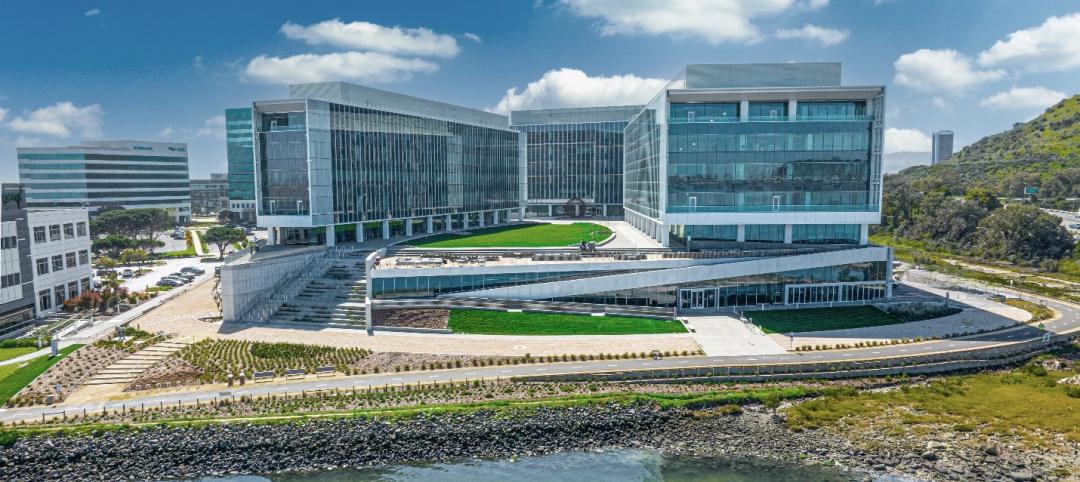Managers of companies in the industrial sector, including construction, have bought the hype of artificial intelligence (AI) as a transformative technology, but their organizations are not ready to realize its promise, according to research from IFS, a global cloud enterprise software company.
An IFS survey of 1,700 senior decision-makers found that 84% of executives anticipate massive organizational benefits from AI. The top three areas where AI is expected to deliver high impact value are product and service innovation, improved internal and external data availability, and cost reductions and margin gains.
But many organizations have not prioritized key elements of AI development, nor do they have the infrastructure and skills required to reap the rewards. More than one-third (34%) of businesses have not moved to the cloud. “While this is not essential to AI adoption, it is indicative of an unprepared enterprise unlikely to be able to scale AI across their business,” IFS says.
“The lack of maturity at the data foundation layer needs to be addressed as part of an overall AI strategy, otherwise AI simply will never be the magic bullet that can turbocharge the enterprise,” says Christian Pedersen, chief product officer, IFS. “Clearly enterprises need support on data management and migration. While AI is seen as a shiny new tool that will revolutionize business, like all technology, it is never that simple. The power of industrial AI is that it can touch all facets of a business, from product innovation and customer experience to productivity and ESG.”
Here is the full press release from IFS:
New research from IFS, the global cloud enterprise software company, has found that executive and board leadership have ‘bought the AI hype’ but organizations are unable to deliver operationally on expectations. The new global study of 1,700 senior decision makers, Industrial AI: the new frontier for productivity, innovation and competition, found that the promise of AI is being held back by technology, processes and skills. Half of respondents remain optimistic that with the right AI strategy, value can be realized in the next two years, and a quarter believe in the next year.
Expectations failing to meet reality
84% of executives anticipate massive organizational benefits from AI, with the top three areas AI is expected to deliver value in being high-impact: product & service innovation, improved internal & external data availability, and cost reductions & margin gains. The hype has become so high that 82% of senior decision-makers acknowledge that there is significant pressure to adopt AI quickly. However, this same group of respondents state that they are concerned that a failure to plan, implement and communicate properly means AI projects will stall in pilot stage.
Many organizations have not prioritized elements of development, nor have the infrastructure required to reap the rewards or the skills to deliver on that promise. The study found that over a third (34%) of businesses had not moved to the cloud. While this is not essential to AI adoption, it is indicative of an unprepared enterprise unlikely to be able to scale AI across their business. According to IFS, a robust Industrial AI strategy requires a potent combination of cloud, data, processes, and skills. 80% of respondents agree that the lack of a strategic approach means they have insufficient skills in-house to successfully adopt AI. This sentiment is seen elsewhere in the research with 43% of respondents rating the quality of AI resources in their business, in terms of human skills, as passable and not where it needs to be.
Christian Pedersen, Chief Product Officer, IFS, commented: “AI is poised to become the most transformational enterprise tool ever seen, but our research reveals that there are still fundamental misunderstandings about how to harness its power within an industrial setting. It is telling that AI is expected to significantly reduce costs and raise margins, but a lack of robust strategy means most businesses are under-skilled and under-prepared to achieve these ambitions. We built IFS.ai specifically with these challenges in mind. AI value simply will not be found in a single AI capability but instead by delivering AI across all products and business processes. This supports customers' decision cycles and provides the data and AI services required to realize value faster.”
Pedersen continued: “Achieving this at scale needs a clear-eyed strategic focus, including the high-impact use cases specific to their industry, having a cloud-based infrastructure in place which has industrial AI embedded, and investing early in developing the skills needed. Adopting this approach will turn the tide of disillusionment, and deliver the benefits that boards and the C suite are demanding.”
Outlook optimistic but planning needed
The unfortunate reality of the skills gap means that in terms of AI readiness, many businesses are falling behind. IFS found that nearly half of respondents (48%) were most likely to say that they are gathering proposals and were much less likely to have a clear strategy and perceivable results (27%). A fifth of respondents are in the research phase, with uncontrolled tests taking place and a further 5% are lacking a coordinated approach and do not have anything in motion yet. Despite initial challenges, there is still optimism with respondents most likely to feel AI could make a significant difference to their business in 1-2 years (47%), and a further quarter (24%) believe it could be within a year.
In particular, respondents are most optimistic about the impact of AI in smart production and/or service delivery on effectiveness & business and operational management (22%) in the future. One fifth see the biggest impact being on innovation with new products and services (20%), growth & business model decision-making (20%), empowering people and increasing talent retention (19%), and customer experience and customer service (19%).
Action needed on data readiness
To reap these benefits, enterprises need to leverage the most strategic asset they have – their data. The right data volume and quality is critical for the success of AI applications. Respondents recognize how important real-time data is to successful AI projects, with over 4 in 5 (86%) stating this. Yet despite this recognition, less than a quarter (23%) of respondents have completed their data foundation with it supporting both data-driven business decision making and real time response to changes, suggesting that more work needs to be done to get data AI ready. Moreover, under half (43%) of respondents have majority structured data, with some unstructured.
Pedersen commented: “The lack of maturity at the data foundation layer needs to be addressed as part of an overall AI strategy, otherwise AI simply will never be the magic bullet that can turbocharge the enterprise. Clearly enterprises need support on data management and migration. While AI is seen as a shiny new tool that will revolutionize business, like all technology, it is never that simple. The power of Industrial AI is that it can touch all facets of a business from product innovation and customer experience to productivity and ESG. Its potential is massive if executives and organizations can combine vision, strategy, technology and skills. Now is the time to step back, take stock, and build a true Industrial AI plan and turn the hype into reality.”
Methodology:
Censuswide surveyed 1,709 C-level/President/SVP/Directors who work in Manufacturing, Telecommunications, A&D, Services, Construction & Engineering or Energy & resources in organizations with $50m+ annual revenue (Aged 18+) across the UK, USA, Canada, Germany, France, UAE, Norway, Japan, Australia, Sweden, Denmark and Finland between 06.03.2024 - 27.03.2024.
Related Stories
Affordable Housing | Apr 1, 2024
Biden Administration considers ways to influence local housing regulations
The Biden Administration is considering how to spur more affordable housing construction with strategies to influence reform of local housing regulations.
Affordable Housing | Apr 1, 2024
Chicago voters nix ‘mansion tax’ to fund efforts to reduce homelessness
Chicago voters in March rejected a proposed “mansion tax” that would have funded efforts to reduce homelessness in the city.
Office Buildings | Mar 27, 2024
A new Singapore office campus inaugurates the Jurong Innovation District, a business park located in a tropical rainforest
Surbana Jurong, an urban, infrastructure and managed services consulting firm, recently opened its new headquarters in Singapore. Surbana Jurong Campus inaugurates the Jurong Innovation District, a business park set in a tropical rainforest.
Cultural Facilities | Mar 27, 2024
Kansas City’s new Sobela Ocean Aquarium home to nearly 8,000 animals in 34 habitats
Kansas City’s new Sobela Ocean Aquarium is a world-class facility home to nearly 8,000 animals in 34 habitats ranging from small tanks to a giant 400,000-gallon shark tank.
Cultural Facilities | Mar 26, 2024
Renovation restores century-old Brooklyn Paramount Theater to its original use
The renovation of the iconic Brooklyn Paramount Theater restored the building to its original purpose as a movie theater and music performance venue. Long Island University had acquired the venue in the 1960s and repurposed it as the school’s basketball court.
Green | Mar 25, 2024
Zero-carbon multifamily development designed for transactive energy
Living EmPower House, which is set to be the first zero-carbon, replicable, and equitable multifamily development designed for transactive energy, recently was awarded a $9 million Next EPIC Grant Construction Loan from the State of California.
Museums | Mar 25, 2024
Chrysler Museum of Art’s newly expanded Perry Glass Studio will display the art of glassmaking
In Norfolk, Va., the Chrysler Museum of Art’s Perry Glass Studio, an educational facility for glassmaking, will open a new addition in May. That will be followed by a renovation of the existing building scheduled for completion in December.
Sustainability | Mar 21, 2024
World’s first TRUE-certified building project completed in California
GENESIS Marina, an expansive laboratory and office campus in Brisbane, Calif., is the world’s first Total Resource Use and Efficiency (TRUE)-certified construction endeavor. The certification recognizes projects that achieve outstanding levels of resource efficiency through waste reduction, reuse, and recycling practices.
Office Buildings | Mar 21, 2024
Corporate carbon reduction pledges will have big impact on office market
Corporate carbon reduction commitments will have a significant impact on office leasing over the next few years. Businesses that have pledged to reduce their organization’s impact on climate change must ensure their next lease allows them to show material progress on their goals, according to a report by JLL.

















